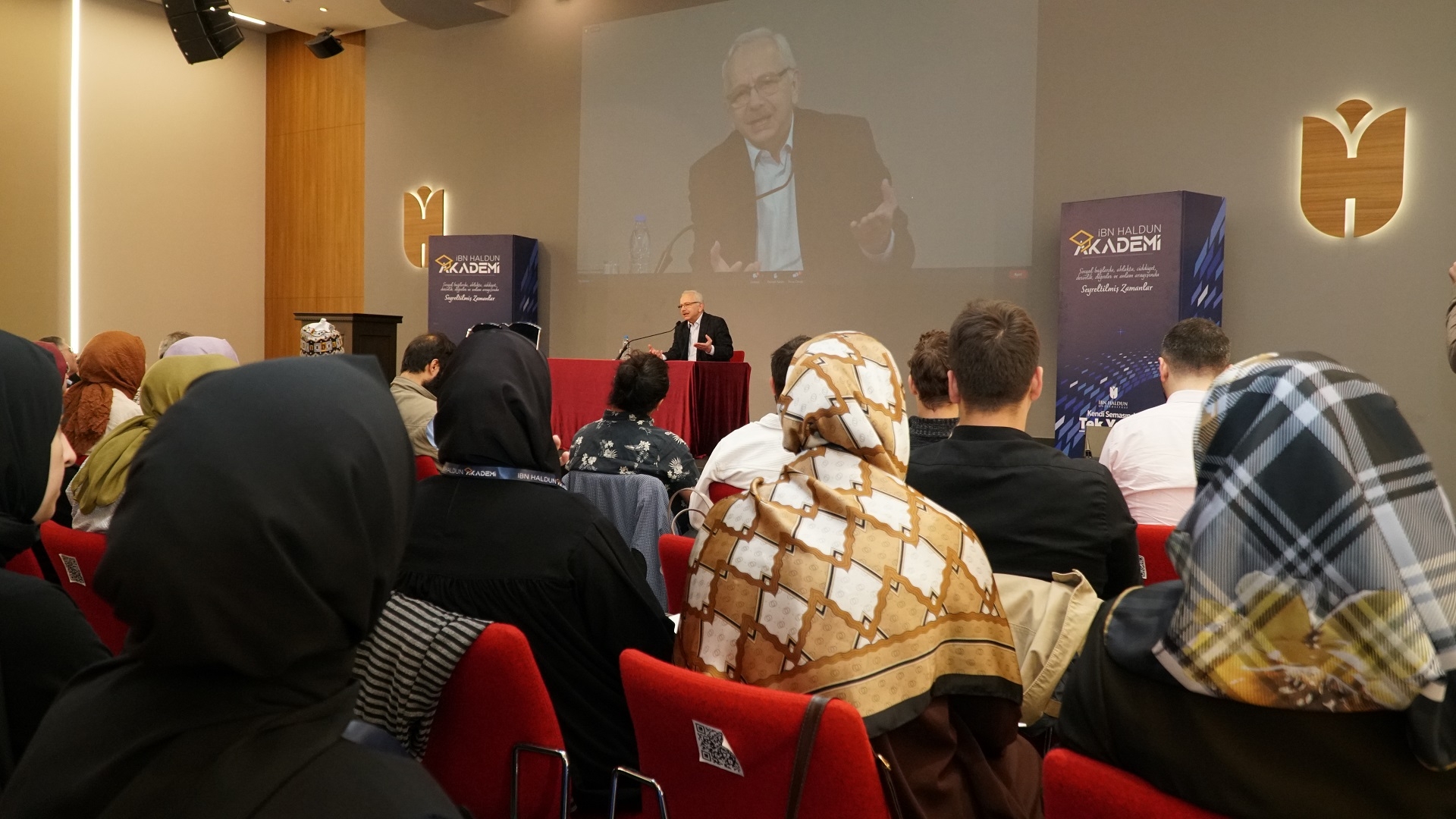


Ibn Haldun Academy, which continues under the theme of Diluted Times and brings together many university students from our country both face-to-face and online, hosted valuable academics such as Prof. Dr. Ahmet Ayhan Çitil, Prof. Asım Cüneyd Köksal and Prof. İsmail Kara, as well as our Rector Prof. Dr. Atilla Arkan and our faculty members Prof. Dr. Alev Erkilet and Assoc. Dr. Vahdettin Işık in the sessions held on May 11 and May 18.
In the first session of the 3rd week of the Academy, our Alliance of Civilizations Institute Director Assoc. Vahdettin Işık, in his seminar on “Living in the Afternoon of History”, addressed the question of how to maintain our awareness in today's world where we are surrounded by so much diversity and difference, and stated that there may be an ontological connection between living in “Diluted Times” and multiplicity, although there seems to be an opposite meaning relationship between multiplicity and sparseness.
In the first session of the 4th week, Assoc. Prof. Işık stated that in order to become a perfect human being, it is necessary to take risks and pay the price, and added that this is the only way to mature and gain identity. Secondly, Assoc. Prof. Işık drew attention to the importance of labor and experience, and concluded his speech by stating that nothing donated and earned without effort can belong to us, and that having honor comes before having an authority.
After Assoc. Prof. Vahdettin Işık, Prof. Alev Erkilet from the Department of Sociology presented the seminar titled “Diluted Values”. Prof. Erkilet stated that if there is a rarefaction as we think there is, it is a signal of a change in the background of society. Erkilet first defined social change from a sociologist's perspective. Underlining that secularization is also a change, Erkilet stated that the policy called “Compartmentalization” is the biggest obstacle in front of the Muslims of our country and the world. Erkilet ended his speech by criticizing the concept of “private property” which even the state cannot intervene.
In the 4th week of the academy, in the continuation of the seminar “Diluted Values”, Prof. Alev Erkilet analyzed the concept of “late modernity”. Stating that today's sociologists do not accept the term “postmodern” and instead prefer the concept of “late or radical modernity”, Prof. Erkilet stated that this is because we are still living in a capitalist social order, but it is also accepted that this structure has now reached a point where it can evolve itself.
In the 3rd week sessions, following Prof. Alev Erkilet's seminar, Prof. Ayhan Çitil, in his lecture titled “Oh, I Wish Someone Would Write That Thesis!”, stated that the essence of the time management problem is not the concept of time itself, and that the most important thing is to answer the question “What should I do?”. Stating that the moment a student enters academia as a future academic candidate, he is actually a part of a long-standing argumentative debate, Çitil emphasized that the debate on the existence of God is essentially an argumentative debate.
Prof. Ayhan Çitil stated that before intending to become an academic, one should search for the answers to the questions of which dialectical debates were held in the previous period and which dialectical debates are being held in the period he is currently living in. Ayhan Çitil added that the prospective academician who is not satisfied with the direction in which the debates have evolved should decide which direction he wants to take the current debate on the axis of his own work. Prof. Çitil concluded his conference titled “Oh, I Wish Someone Would Write That Thesis!” by emphasizing the importance of trying to stay up to date in today's academia.
In the last session of the 3rd week of Ibn Haldun Academy, Prof. Asım Cüneyd Köksal presented inspiring anecdotes to young undergraduate and graduate students in his speech about the life, exemplary personality and works of the great Islamic scholar and mufassir Elmalılı Hamdi Yazır within the scope of Role Model Talks. Prof. Köksel stated that the striking points in Elmalılı's personality, along with the aspects that look at today's people, are his bottomless curiosity for all sciences and arts shaped in his personality, and added that Elmalılı also had a great power of focus, determination to work and a steep stance that did not compromise his principles. Stating that his work “The Language of the True Religion of the Qur'an” was a work in which he provided philosophical, sharia and even natural sciences interpretations on all the important issues that have been discussed in the Islamic world throughout history, Köksal said that according to Hamdi Yazır's relatives, he was the author of the book “The Language of the True Religion of the Qur'an”.